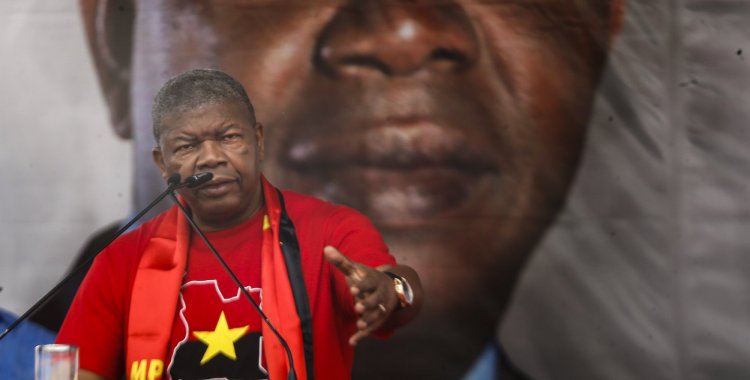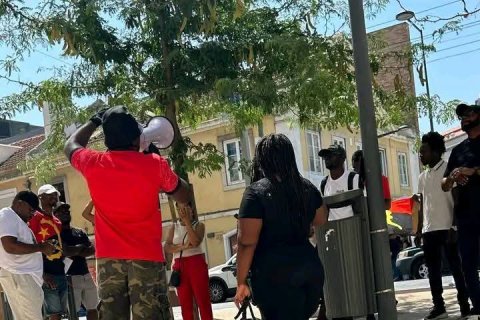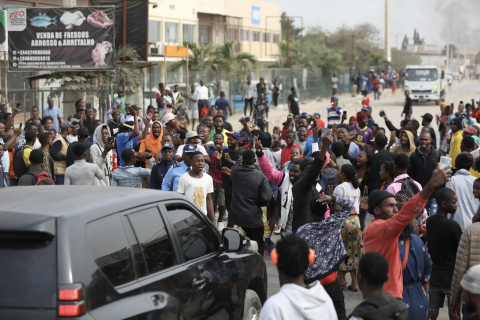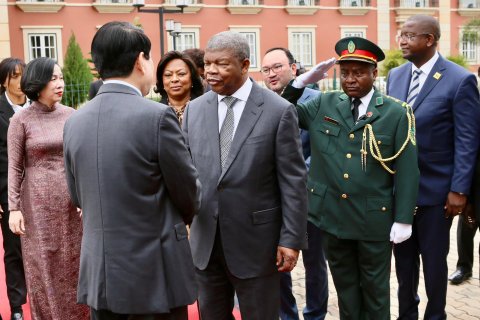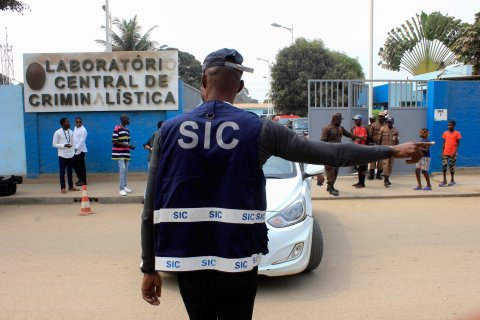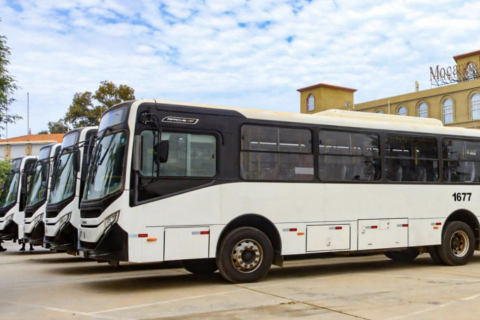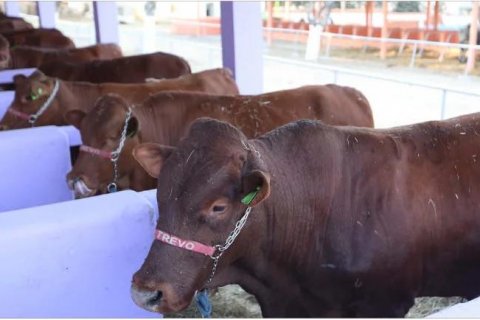In particular, he knew how to go through a long "crossing the desert" of almost 10 years, when in 2001 the then President José Eduardo dos Santos announced that it was time for the party to think about his succession.
João Lourenço interpreted the announcement according to his interests and positioned himself in the race for succession, which earned him the removal of the first party line, being a victim of the sibylline way in which José Eduardo dos Santos always exercised power in Angola.
Referred to one of the vice-presidencies of the National Assembly, João Lourenço is politically rehabilitated in April 2014, with the appointment to the portfolio of National Defense, and two years later with the election in congress for the vice-presidency of the Popular Liberation Movement of Angola (MPLA), the last step to win the presidential elections in 2017.
Born in Lobito, a coastal city to the south of Luanda, João Lourenço was born on March 5, 1954 in a family of ten brothers formed by a nurse and a seamstress, a family unit committed to the cause of decolonization and the independence of the then Province Ultramarina de Angola, created by the Salazar regime in 1951 as an integral part of Portugal.
As a child, he attended primary and secondary schools in the province of Bié and in Luanda, after which he studied at the Industrial Institute in the capital.
Encouraged by his father, who had already spent time in the prisons of the former Portuguese colonial regime due to his clandestine nationalist activities, in August 1974, at the age of 20, João Lourenço joined the armed struggle of the MPLA, having received military training at the Revolutionary Instruction Center (Centro de Instrução Revolucionaria - CIR) Calunga, in Dolisie, in the neighboring Republic of Congo, (formerly Zaire).
Following a training scheme typical of African liberation movements protected by the then Soviet Union, he was sent to Moscow in 1978 to attend higher education, both academic and military.
For four years he attended the Vladimir Ilitch Lenine Political-Military Academy, from which he emerged with a degree in Historical Sciences, a good knowledge of Russian, English and Spanish languages and training as an officer of the Popular Armed Forces for the Liberation of Angola (FAPLA, armed of the MPLA).
In September 1979, the future leader learned of the death in Moscow of President Neto, victim of a terminal illness, and of the assumption in Luanda of the leadership of the party and the State by a lieutenant he fully trusted, José Eduardo dos Santos.
Back in Angola, in 1982, João Lourenço returned to the active service of the FAPLA and, with the insignia of artillery general, participated in the war actions against the National Union for the Total Independence of Angola (UNITA, led by Jonas Savimbi) on the front lines in the interior of the country and was commander of operations in the Huambo area until 1983, the year in which he received command of the 3rd Military Region and the Moxico Provincial Commissariat, from which he instructed the morale of the soldiers and monitored their ideological loyalty to the regime.
In 1984, his career took a more political turn when he was appointed governor of Moxico. He rose to the Secretariat of the MPLA Political Bureau, taking charge of the area of communication in 1992, the decisive year of the political transition in Angola.
At the IV Ordinary Congress of the MPLA, held in December 1998 and which served to clarify the ideological basis of the party, defined as democratic socialist, João Lourenço was elected secretary-general and this promotion was then interpreted as a clear sign that José Eduardo dos Santos saw the licensed general as a potential successor at some point in the future.
The 10-year "desert crossing" to which he was subjected coincided with the economic 'boom' that Angola experienced due to revenues generated by oil exports, which peaked in 2007.
The revenues generated during this period were the ferment of mismanagement, sudden personal enrichment and rampant corruption at the highest levels of the regime.
On 22 April 2014, João Lourenço was appointed Minister of Defense by José Eduardo dos Santos.
Unlike most other leaders at the top of the party and the state, João Lourenço was far from the shadows of corruption and did not even seem interested in easy profit.
The renewed speculation in favor of João Lourenço being the successor of José Eduardo dos Santos became a certainty on December 2, 2016, when the former President clearly stated that he would not be an electoral standard-bearer.
At the same time, the MPLA Central Committee proposed the Minister of Defense for this task. On the 10th of December, at the ceremony of the 60th anniversary of its foundation, the MPLA presented Lourenço's presidential candidacy. On 3 February 2017, the MPLA Political Bureau officially proclaimed him number two as head of the list for the elections to the Assembly, which took place on 23 August.
The beginning of his first term was auspicious, and he quickly became known as a "ruthless exoneator" as he led the batteries in the anti-corruption struggle against the family of José Eduardo dos Santos.
Elected for the first time with the promise of being "the man of the economic miracle", João Lourenço wanted to leave his mark and tear with the past. The meetings he sponsored in the presidential palace with voices critical of the regime and the interviews given to the press are examples of the differences he sought to impose in relation to the exercise of his predecessor's power.
At the same time, João Lourenço initiated numerous reforms, namely at the economic level, ranging from currency liberalization to privatizations, including the reorganization of Angolan banking.
But as the end of the first term approached, the socio-economic situation became more complicated and the effects of covid-19, social protests due to the lack of fulfillment of the promises of more jobs made five years earlier, the fight against corruption by sowing discord within the MPLA and, finally, the death, at the beginning of July, of José Eduardo dos Santos, digging up tensions with the ex-President's family, form the broth to which a more organized and led by the charismatic new leader of the National Union for the Total Independence of Angola (UNITA), Adalberto Costa Júnior.
After five years in power, João Lourenço revealed the traits that characterized the exercise of power by his predecessor, José Eduardo dos Santos, seeking to ensure continuity.
Above all, the continuity of the police, military and intelligence services, indispensable instruments for maintaining power, according to complaints from activists and national and international organizations.
The MPLA won the elections in Angola with 51 percent of the votes against 44 percent for UNITA, according to the final results announced this Monday by the National Electoral Commission (CNE), with the Angolan Constitution defining that the President is the head of the most voted party.

